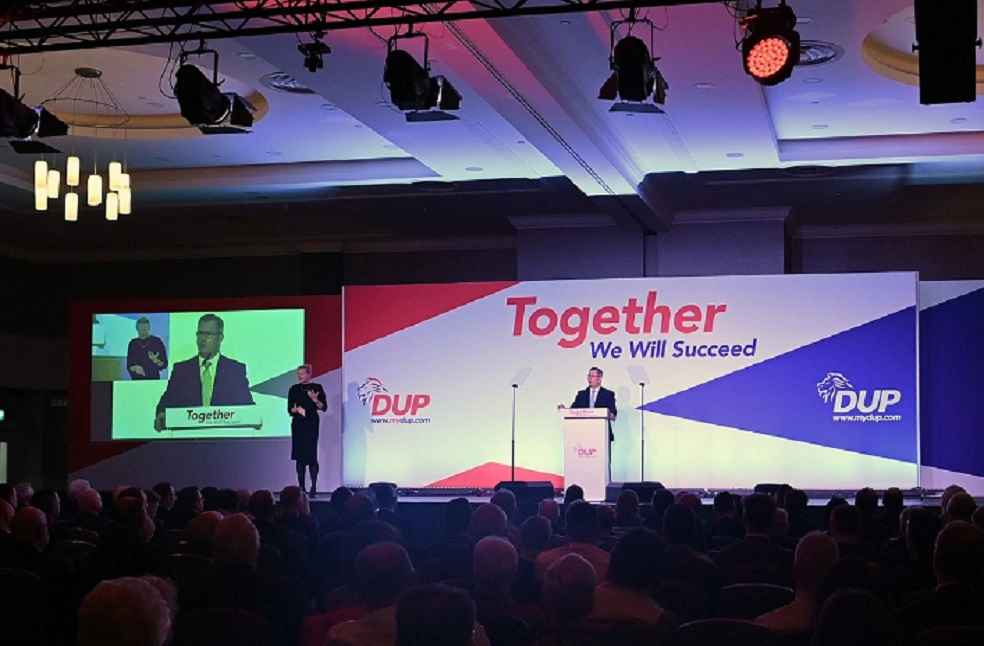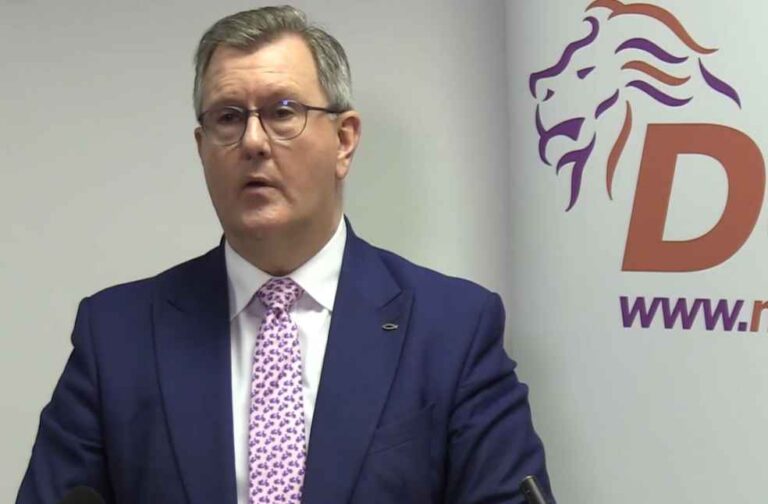The UK government is on the cusp of disclosing details of its accord with the Democratic Unionist Party (DUP), a crucial step towards reinstating power-sharing at Stormont. This announcement comes in the wake of the DUP’s conditional approval of the deal, pending the expedited enactment of pertinent legislation, potentially by Thursday.
DUP leader Sir Jeffrey Donaldson has endorsed the arrangement, asserting it lays a foundation for the reactivation of Northern Ireland’s devolved legislature. The DUP has been stalling the operation of this body for almost two years, protesting the post-Brexit trading terms between Northern Ireland and Great Britain, which, according to unionists, dilute Northern Ireland’s ties to the UK.
The Secretary of State for Northern Ireland has assured that the deal’s provisions will fortify Northern Ireland’s role in the UK’s internal market. Chris Heaton-Harris is slated to brief Parliament on the deal and release a command paper outlining the specifics.

Meanwhile, key Stormont parties are poised to meet Tánaiste Micheál Martin in Belfast. If Parliament passes the legislation on Thursday, the Stormont assembly might reconvene as early as Friday or Saturday. Heaton-Harris has signalled “substantial changes” stemming from the deal, clarifying that it doesn’t impinge on the UK’s discretion to diverge from EU rules.
The pact follows dialogues between the DUP and the government to modify the Windsor Framework, a pact inked last year between the UK and EU to rectify issues with the earlier Northern Ireland Protocol. Sir Jeffrey has highlighted that the new law will abrogate checks on goods circulating within the UK and staying in Northern Ireland, and terminate Northern Ireland’s automatic compliance with EU statutes. He also alluded to forthcoming legislation safeguarding the Acts of Union, ensuring seamless access for Northern Irish businesses across the UK.
Speaking recently, Sir Jeffrey characterised the deal as a “substantial change,” noting the elimination of physical and identity checks on goods transiting between Great Britain and Northern Ireland, except under suspicion of smuggling or criminal activities.
Sinn Féin’s Michelle O’Neill, likely to be nominated as first minister given her party’s majority in the last assembly election, greeted the progress as a “day of optimism”. In contrast, Traditional Unionist Voice (TUV) leader Jim Allister lambasted the DUP’s arrangement with the government, contending that Northern Ireland’s position within the UK remains compromised.
KNOWLEDGE | Greenland ice melting poses threat to humanity; Study



